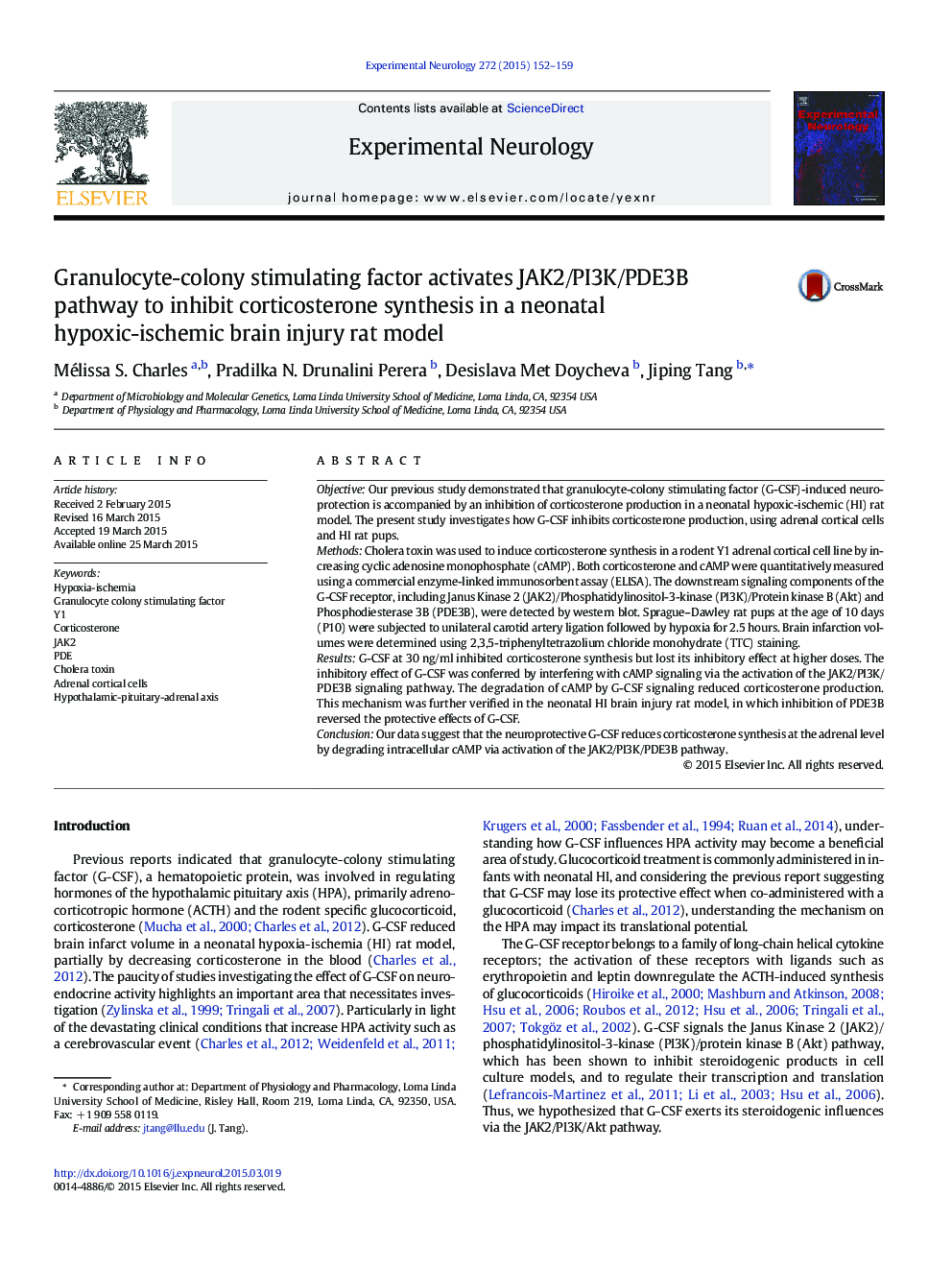| Article ID | Journal | Published Year | Pages | File Type |
|---|---|---|---|---|
| 3055390 | Experimental Neurology | 2015 | 8 Pages |
ObjectiveOur previous study demonstrated that granulocyte-colony stimulating factor (G-CSF)-induced neuroprotection is accompanied by an inhibition of corticosterone production in a neonatal hypoxic-ischemic (HI) rat model. The present study investigates how G-CSF inhibits corticosterone production, using adrenal cortical cells and HI rat pups.MethodsCholera toxin was used to induce corticosterone synthesis in a rodent Y1 adrenal cortical cell line by increasing cyclic adenosine monophosphate (cAMP). Both corticosterone and cAMP were quantitatively measured using a commercial enzyme-linked immunosorbent assay (ELISA). The downstream signaling components of the G-CSF receptor, including Janus Kinase 2 (JAK2)/Phosphatidylinositol-3-kinase (PI3K)/Protein kinase B (Akt) and Phosphodiesterase 3B (PDE3B), were detected by western blot. Sprague–Dawley rat pups at the age of 10 days (P10) were subjected to unilateral carotid artery ligation followed by hypoxia for 2.5 hours. Brain infarction volumes were determined using 2,3,5-triphenyltetrazolium chloride monohydrate (TTC) staining.ResultsG-CSF at 30 ng/ml inhibited corticosterone synthesis but lost its inhibitory effect at higher doses. The inhibitory effect of G-CSF was conferred by interfering with cAMP signaling via the activation of the JAK2/PI3K/PDE3B signaling pathway. The degradation of cAMP by G-CSF signaling reduced corticosterone production. This mechanism was further verified in the neonatal HI brain injury rat model, in which inhibition of PDE3B reversed the protective effects of G-CSF.ConclusionOur data suggest that the neuroprotective G-CSF reduces corticosterone synthesis at the adrenal level by degrading intracellular cAMP via activation of the JAK2/PI3K/PDE3B pathway.
